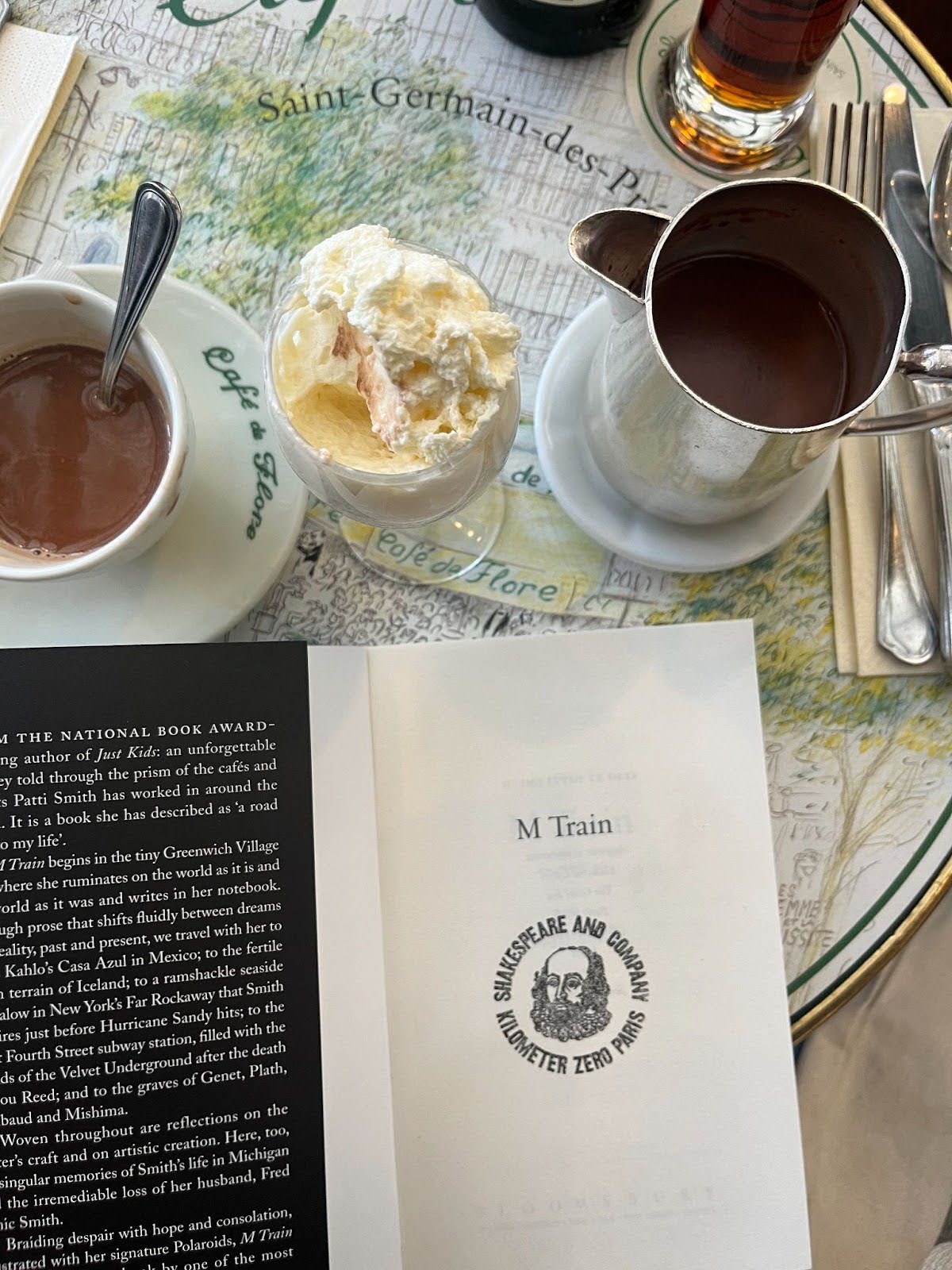Dear Diary combines the intimacy of a diary-like narrative with the writer’s own experiences, little and big, as well as politics and culture.
In a letter to Patti Smith, Robert Mapplethorpe writes that when he draws, he sings naked with God.
Naked. Bare, stripped down to the bone.
Patti recalls her bouts of weeping in the tiny New York apartment she shared with Robert, which was covered in art and Bob Dylan and John Lennon. A torrential rainfall of mourning, and maybe making. One day, Patti and Robert asked an older couple to take their photo. The couple agreed, because look at them. Look at their art: They’re just kids.
That is what it feels like when you drink the same syrupy hot chocolate in the same Parisian cafe as the people you love, the people whose words look right into you while you look up to them, eyes glistening and chest glittering. Your saviors, (mostly) dead and wrinkly under sodden dirt, must have also grimaced at the soggy sandwiches and toothache-inducing drink, but despite it all, they wrote.
You can hear their haunting whispers. Go on, they say. Fall in love. Get sick. Write.
The sky begins to clear and a soft, warm glow blooms in your heart. You stare at the blank page like a kid gazing into a toy shop. It’s all so beautiful, so giddy and terrific and exciting that those whose words have melted your veins and dropped rocks in your heart are so close.
Are they?
They are. Keep pretending, and maybe it’ll be real.
So you pretend that they are near, and you almost forget that the hot chocolate is quite unfinished and still sickeningly sweet. You pretend, and you want — to write, to live, to love. It’s all too much, too fantastic — too bad that you must suppress the desire to chirp “Mommy! Daddy! Look at this!” and dance, dance, dance to the whispers of these ghostly saviors buried below. It’s a childish love, a whimsical excitement that usually only results in rambling thoughts and jumping frantically.
Calm down. Stop acting like a kid.
But when Patti confesses that she succumbed to sitting in Robert Bolaño’s chair in the shadowy hopes of becoming a better writer, this childishness feels a little better. We like to dream about things. We like to cry about things. We like to love things. All a little too much. We’re just kids.
But sometimes, there is no youth in this childishness. No dancing. The same love as before exists when you intertwine yourself with the likes of Plath and Kaysen, but when you look in the mirror, years have passed. Worrisome wrinkles seem to have nestled themselves in your face. Your eyes appear to rest on a bed of staining shadows.
This love ages you; it is wretched and leaves you defenseless.
Robert sings naked with God.
You cry, a skeleton babbling with bleary-eyed women. Babbling! You are still childish — despite the weeping and suffocation and all that, the same adoration and desire to squeal is present. Move forward with it. Grow old (and really grow old) but stay a kid.
